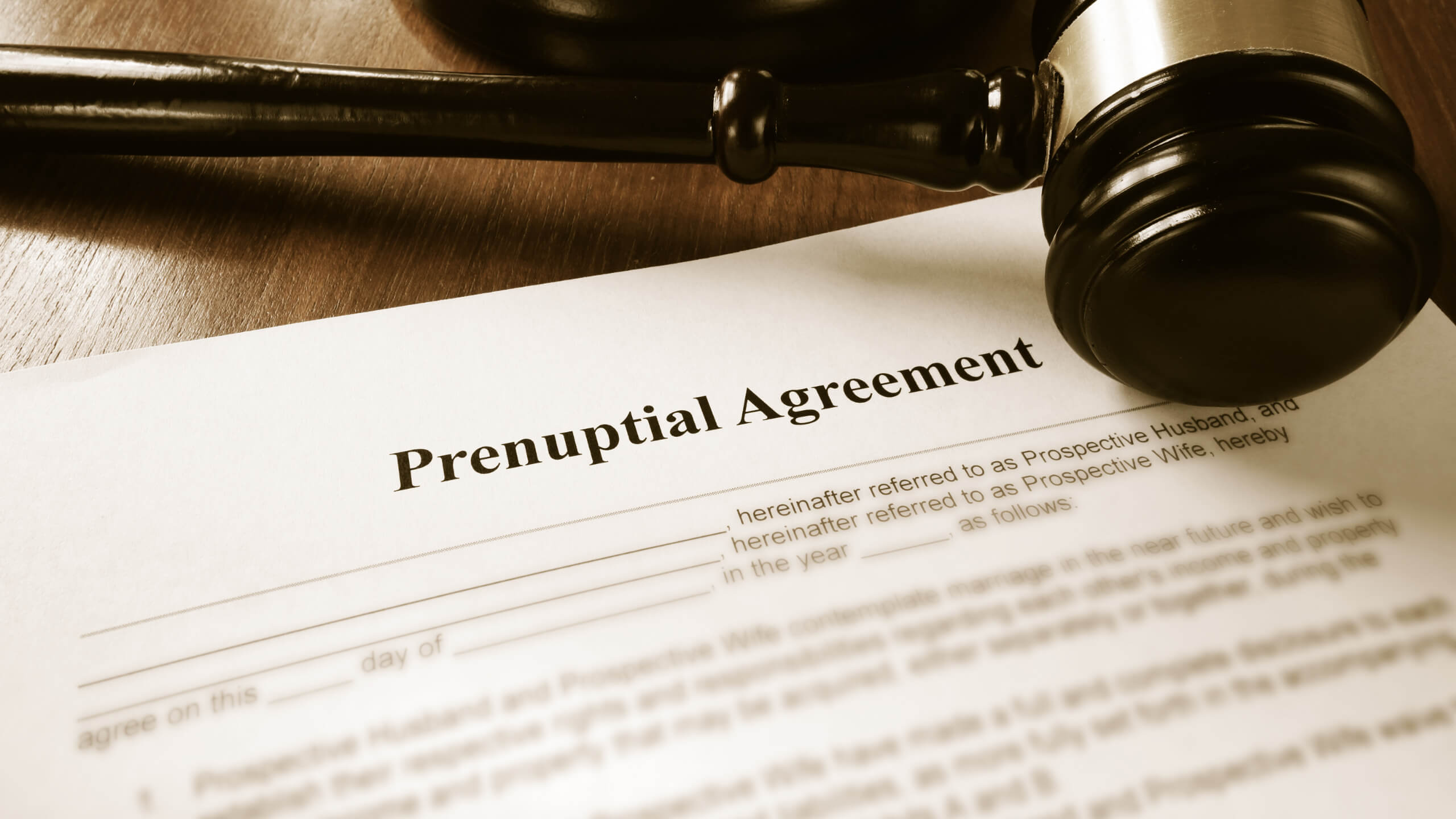Why A Prenuptial Agreement May Be Unenforceable

What is a Prenuptial Agreement?
A prenuptial agreement, or prenup, is a form of protection for both parties entering a marriage. A prenuptial agreement can protect the funds and assets that you hold before entering into the marriage. A prenup can also define the debt each person may owe before getting married and make each person responsible for those amounts. In the unfortunate case of a divorce, a prenup can be extremely useful because it is an agreement on many of the key issues that would need to be determined within a divorce. Often, having a prenuptial agreement helps ease the tension and conflict within a divorce process. It often helps protect prior children if you were to die without a will.
A prenuptial agreement must meet certain requirements to be valid both when it is entered and when it is sought to be enforceable.
Are you wondering what would cause a prenuptial agreement not to be valid? Call O’Connor Family Law today at 774-703-3755 or contact us online to learn more.
What Makes a Prenuptial Agreement Invalid?
A prenuptial agreement may be invalidated by a Court for a few reasons. This article will discuss five reasons why a prenup may be unenforceable.
There Was No Written Agreement
The first reason would be if your ‘agreement’ is verbal. A prenuptial agreement must be in writing. If you earn $250,000.00 per year and your soon-to-be-wife, a part-time waitress, tells you that she would never go after alimony from you if you get divorced unless that agreement is in writing, there is no way a Court would hold her to that statement. If you want it to be enforceable, it must be in writing.
Inadequate Disclosure
In all prenuptial contracts, both spouses must provide complete and adequate disclosure of each person’s assets and liabilities they bring into the marriage. If this is not done, the agreement’s validity may be challenged. Providing disclosure of all assets to each party is ethically and legally necessary to ensure that both you and your to-be spouse understand the financial picture he or she is walking into. If you don’t know what it is, how can you know what you’re giving up? You can’t, so that’s why this is a requirement.
Agreement Must Be Free Of Coercion at Signing
For a prenup to be valid, you and your soon-to-be spouse must enter the agreement willingly and without coercion. This may also include situations where not enough time was allotted for each party to analyze the contract thoroughly and obtain individual legal advice. Weddings often take months of planning. The same care should be given to a prenuptial agreement. If one spouse did not have time to read the document thoroughly or was pressured to sign it, a judge may hold the agreement unconscionable and unenforceable. To clarify, one person is usually not as thrilled to enter into the prenuptial agreement as the other. If the to-be spouse has more to lose if the relationship goes south and says he or she refuses to get married unless the prenuptial agreement is signed, that will not be enough to show there was an unwillingness to sign or coercion. There must be more than that to show this requirement was unmet.
A lack Of Legal Counsel
In prenuptial agreements, individual legal counsel is advised for both parties, and a lack of experienced counsel may be another reason why a prenuptial agreement may be unenforceable. The laws surrounding divorce can be complicated and are subject to change. The state allows you to contractually give away rights you might otherwise be afforded if you did not have a prenuptial; however, the state wants to ensure that you understand the rights you are giving up. Now, if you choose not to obtain a lawyer, thinking that makes it easy to get out of later, that’s the wrong position. The counter-argument is that you had the opportunity to have legal counsel but voluntarily chose not to. Ignorance of the law is never an excuse if you get the chance to obtain information and advice. If you’re the to-be spouse who wants the prenuptial, you may want to invest a few hundred dollars into a separate attorney for your better half to ensure they cannot argue later that they did not understand what they were giving up.
It’s Unconscionable at the Time Entered or at the Time Enforced
This is a tricky one. If you’re the one who is giving up rights you might otherwise have if you get divorced, you may feel like your to-be spouse is not being fair. But fairness is very different than unconscionableness. The longer your marriage lasts, the more significant the disparity between the two spouses may be, leading to a greater chance of the prenuptial agreement being unconscionable. If the deal is set up to leave one spouse on the street without the financial means to support him or herself, there’s a higher chance the Judge may determine the agreement to be excessive and invalid.
HELPING YOU CREATE AN ENFORCEABLE PRENUPTIAL AGREEMENT
If you are considering marriage, you may want to think about whether a prenuptial agreement would be in your best interest. If you decide to proceed with a prenup, obtain a lawyer who understands what is necessary for a prenuptial agreement to be enforceable. Our experienced team at O’Connor Family Law can help you create a prenuptial agreement that meets your needs and has the best likelihood of being held as enforceable. Call today to schedule an intake so we can work on your premarital agreement and protect your future!
Contact O’Connor Family Law today to get started with our family law team in Worcester County.


